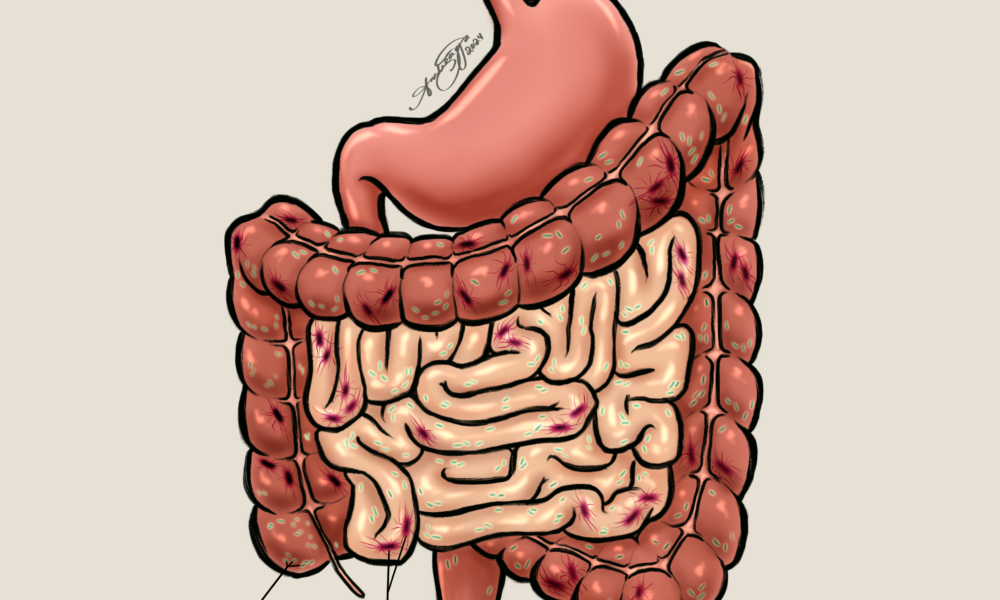How many times have your parents or significant other reminded you to take your supplements, emphasizing their health benefits?
Over the past few years, probiotics have garnered significant attention due to studies showcasing their efficacy in treating various human diseases. Researchers believe that probiotics promote human health by stimulating the immune system and inhibiting the growth of pathogens. By acting as adjuvants, probiotics have the potential to enhance the effectiveness of a cure by supplementing the immune response. This combination approach can help to strengthen the body’s defense mechanisms and improve the overall outcome of the treatment.
A recent meta-analysis by Eva Suarthana, adjunct professor in McGill’s Department of Obstetrics and Gynecology, and her team unraveled the numerous effects of probiotics on a series of infections, particularly intestinal infections that roots from a common bacteria of H. pylori. Suarthana’s research aims to guide policy changes and recommend effective treatments within current patient care policies.
So, what exactly are probiotics and why are they so important?
“To put it simply, probiotics are a distinct group of organisms that enter infected areas to fight against harmful substances that cause negative effects,” Erni Nelwan, first author of the paper and full professor in the Department of Internal Medicine at Faculty of Medicine Universitas Indonesia, said in an interview with The Tribune.
Suarthana, Nelwan, and the rest of the team initiated research focusing on probiotics when they realized they had not conducted any meta-analyses on the various beneficial effects of probiotics as a supplementary measure for promoting health.
Probiotics function as adjuvants to strengthen the immune system, preventing recurring infections caused by weakened immunity. They achieve this by maintaining the stability of the cell flora in organs and preventing pathogens from adhering to surfaces during interactions with the immune system.
“It’s not that probiotics can serve as a cure for all infectious diseases, but it can work as a supplement for our body to lessen the chance of one catching one,” Suarthana said.
Another interesting finding showed that when people receive antibiotics, they build resistance to them, and over time repeated infections would cause the potency of antibiotics to go down.
“In some countries, there’s no modulation of how drugs should be administered, so the first drug that can be prescribed to patients suffering from infectious diseases are antibiotics,” Nelwan added.
Nelwan and Suarthana’s team conducted extensive patient studies across different countries to minimize bias. Their review is the first to provide a comprehensive overview of the use of probiotics in managing highly prevalent infectious diseases; this meta-analysis is the extension of their work on 2011 regarding their investigation on diarrheal cases.
Researchers have established that probiotics in the gastrointestinal tract have a specific binding affinity to H. pylori– a bacteria that causes ulcers. Its presence in the stomach leads to the production of substances that hinder its attachment to the cells of the gastrointestinal tract. Probiotics also possess the ability to secrete antimicrobial substances, such as lactic acids, which damage harmful bacteria and help to prevent potential infections.
Furthermore, Nelwan and Suarthana examined studies where they administered probiotics to patients at varying frequencies throughout the duration of the study.
“Probiotics were effective when administered with triple regimen therapy as a first-line treatment, but not with quadruple regimen for H. pylori eradication,” Nelwan explained.
Despite the promising findings of this meta-analysis, which suggest that probiotics are effective in curing a range of infections, there are still uncertainties about the overall impact of probiotics on patient well-being. This is mainly due to the limited number of published studies on this topic and the fact that doctors primarily rely on other medications to treat infectious diseases, as Nelwan explained.
While probiotics may not be a cure-all for infections, they play a vital role in understanding the intricacies of infectious diseases in human health. Continuous study in this field has the potential to bring more accessible and successful probiotic treatments.






